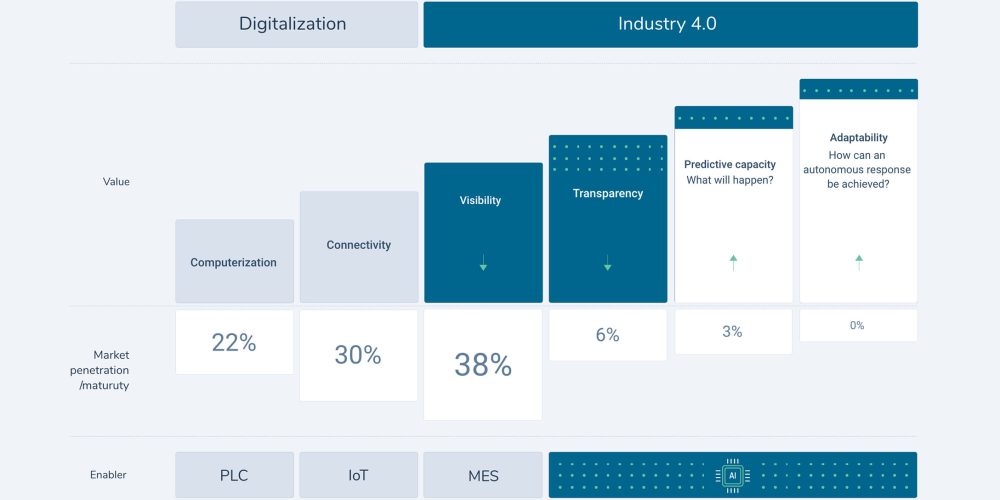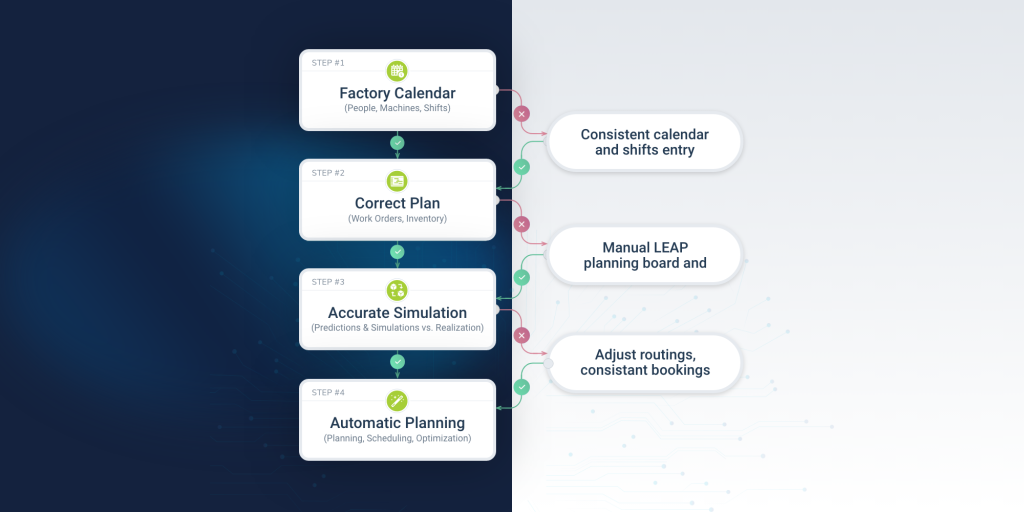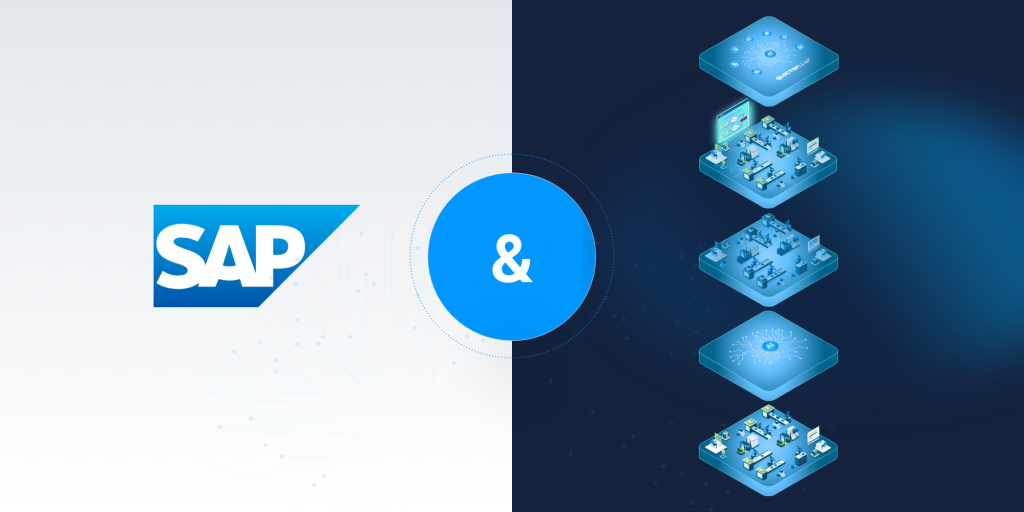Progress is driven by constantly asking what can be done to improve the existing situation. At QLECTOR we work hard to help our clients answer this question proactively by offering predictive capabilities built into QLECTOR LEAP platform.
In previous posts we discussed the importance of visibility and transparency: real-time information about our factory helps us have a clear picture of ongoing processes and operations. Based on timely and accurate information we can better understand pain points affecting overall performance and draw strategies to solve them. Adding predictive capacity, we are also able to anticipate events before they happen and plan ahead of time to avoid potential issues.
Some examples of such predictive capacity are the ability to project manufacturing delays and associated uncertainty as well as to understand how new configurations may affect those projections. Collected information is used to perform simulations and provide insights on which workers should be engaged and for how long to meet the deadlines. The planner will evaluate if the deadline can be extended or a new shift shall be introduced as well as if work needs to be done over weekends. In the future, this decision could be learned by the platform to automatically suggest the best route to follow based on a planner’s past decisions in similar situations.
Another case would be the case of demand forecasting, which impacts decisions on what goods to buy, resources planning as well as stocks of produced goods. Current demand forecasting is usually done by logisticians who keep track of clients and demanded goods and do their best to take into consideration their requirements and context to understand how demand will behave. But humans cannot take into account infinite variables and require much time to gain experience and drive better results. This process can be accelerated with AI models that leverage visibility into processes, buyer’s status and general context and learn from historic records in short time delivering results as good as proficient logisticians. Ideally, we should assist logisticians in providing a short explanation for each case, which will help to understand the rationale behind the prediction and decide if shall be trusted or adjusted with certain criteria.
Predictive capacity can be applied to almost any domain: from early issues detection at the machine level to perform early maintenance and avoid downtimes in identifying risky buyers who may not honor payments.
If these cases sound useful to you or you are just curious how QLECTOR LEAP can help on your Industry 4.0 journey, drop us an email — we will be happy to hear from you!











